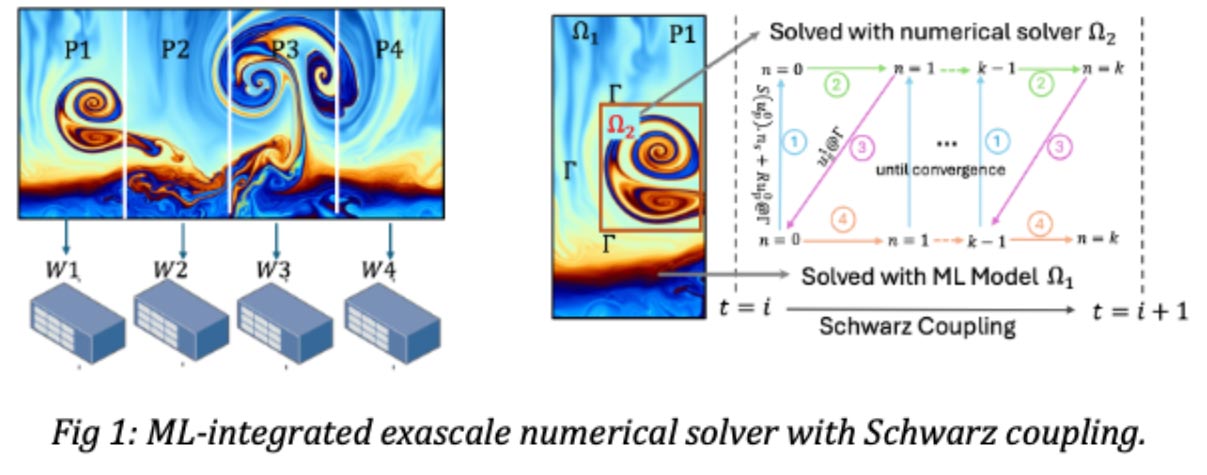This project proposes a machine learning integrated framework for efficient parametric sweeps of exascale multiphysics simulations. The framework combines graph neural network-based neural operators with traditional numerical solvers, introduces a probabilistic sampling-based message-passing technique, implements hierarchical federated learning, and employs a one-shot learning approach for dynamics correction. The methodology aims to revolutionize computational physics on exascale systems by enabling comprehensive parametric studies while reducing computational expenses.
Enabling parametric sweeps on exascale AI-integrated simulations through federated learning (EAGER)

Project leads, key team members
Somdatta Goswami (Principal Investigator, Assistant Professor, Johns Hopkins University), Krishna Kumar (Co-Principal Investigator, Assistant Professor, University of Texas at Austin)
Advancing NAIRR Infrastructure
The project advances NAIRR infrastructure through the development of hybrid spatial coupling mechanism and probabilistic sampling-based message-passing technique to address critical efficiency and scalability challenges in exascale computing, potentially improving the performance of large-scale computational resources.
Advancing AI research
The project pushes the boundaries of AI research by integrating graph neural network-based neural operators with traditional numerical methods, developing a hierarchical federated learning approach for in situ model adaptation, and creating a one-shot learning method for rapid dynamics correction. These advancements contribute to the field of AI-assisted scientific computing and simulation.
Innovative partnerships
The project involves collaboration with Austin Public Library for educational outreach and engagement with programs like Code@TACC.
Advancing domain science
The project aims to demonstrate its approach using CO2 sequestration and additive manufacturing problems as proof-of-concept. This application of the framework to specific scientific domains indicates potential advancements in these areas, enabling more comprehensive parametric studies and potentially accelerating scientific discoveries and engineering innovation across disciplines.
Broader Impacts
- Educational outreach: The project expands Tween Code Clubs at Austin Public Library and participates in the Code@TACC program, reaching out to youth aged 7-12 and high school students interested in STEM careers.
- Promoting diversity and inclusion: The outreach programs target Latinx, African-American, and first-generation college aspirants from Title 1 schools, focusing on underrepresented communities.
- Mentorship and training: The project will engage new researchers through Google Summer of Code and NSF REUs and train two Graduate Research Assistants.
- Community building: The team plans to publish open-source codes, benchmark datasets, journal articles, and presentations, disseminating them through NSF SCIPE Chishiki AI ecosystems to broaden the adoption of open-source tools in computational sciences.
- Ethical AI education: A new AI for Teens club will be launched at the library, focusing on the ethical aspects of AI.
More information
Learn more about how the Enabling parametric sweeps on exascale AI-integrated simulations through federated learning project can meet your needs by contacting our team directly at sgoswam4@jhu.edu and krishnak@utexas.edu.
This work is supported by National Science Foundation Grant No. (#2438193).